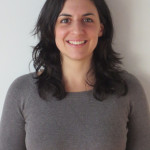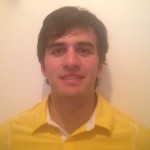Since the summer of 2016, LIH Olivia’s Place has provided multi-disciplinary speech, occupational, physical, and even behavioral therapy, to children at Shining Star. Shining Star is a program for blind and partially sighted orphans who live in a residential home in Shanghai. It was established in June 2012 for these children to receive one to one care and instruction in basic life skills.
Therapists from each discipline visit Shining Star on a six week rotation, to assist staff, care managers, and volunteers, who work with the children each day, to provide specific therapy targets for each child. Through modeling, demonstration, and feedback, the staff is then able to carryover individual targets in each therapy discipline until the therapist’s next visit. There are also written notes for each child so the caretakers can remember what to work on.
The speech therapy team has been an integral to the program, using speech-language therapists to help these children improve their basic communication needs. On a few occasions, experienced speech-language pathologists from outside of LIH Olivia’s Place have accompanied the team to volunteer their time and expertise at Shining Star, while gaining a fulfilling volunteer experience in China.
One of the more notable aspects of LIH Olivia’s Place’s involvement with Shining Star, however, has been the training opportunities for Chinese-trained therapists. This successful training model has given junior staff members, such as Xieling Zhou, a chance to develop a high standard of clinical skills, specific to children with moderate to severe vision weaknesses and developmental delays, all while receiving supervision from internationally-trained therapists.
Typically, in a speech-language session at Shining Star, Xieling sees approximately 5 children in one day, each individually for about 30 minutes. She starts her sessions by having the staff model what they have been doing with each child in the previous weeks. She is able to gain an idea of what has been worked on and what has been helpful for each child, while also being able to provide more structured guidance in how the staff can improve each activity. Xieling also works with the children and staff in Chinese. Therefore, the children receive intervention in their native language and the staff receive specific and immediate feedback to help them carryover the treatment plan.
Since LIH Olivia’s Place began collaborating with Shining Star, many of the children have gone from being non-verbal, to speaking sounds and words. They are now imitating language more, are saying earlier developing sounds, and seem more motivated to use words and sounds to request their basic needs.
It is hoped and expected that the children will continue to make progress in the future, as the staff and children gain more opportunities to work on all areas of functional living skills. More and more local therapists will also be able to work with these children to gain more clinical experience. Shining Star and LIH Olivia’s Place have a relationship which is mutually beneficial; it is also a perfect example of the LIH Olivia’s Place vision and mission to change how therapy is done in China.






